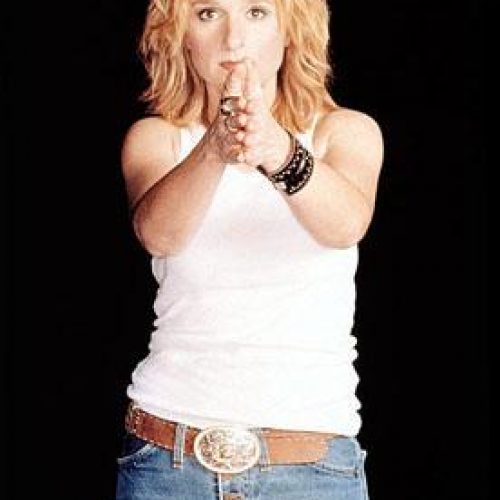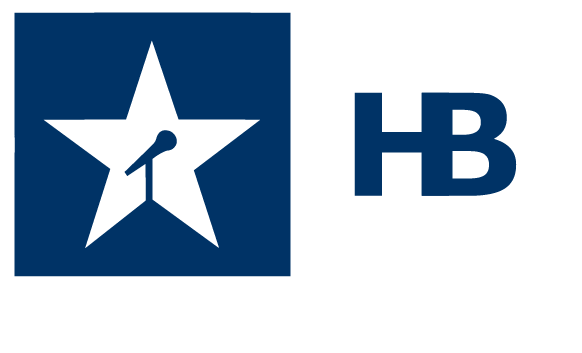Home - Artists - $150,000-$350,000 - Melissa Etheridge
Book Melissa Etheridge

Imagine Melissa Etheridge Headlining Your Event!
The staff of Headline Booking Group will work with you to produce a flawless and memorable event. Get started now by filling out our no-obligation Artist Request Form.
Biography
Melissa Etheridge Biography
Melissa Etheridge
Biography 🎸
Born on May 29, 1961, in Leavenworth, Kansas, Melissa Etheridge is a Grammy-winning singer-songwriter and a fearless trailblazer in the world of rock music. Known for her raspy vocals and confessional lyrics, Etheridge broke into the music scene in the late '80s with her self-titled debut album, which quickly established her as a bold new voice in rock.
With heartfelt songwriting that pulls from her own experiences, Etheridge is celebrated for hits like "I'm the Only One," "Come to My Window," and "Bring Me Some Water." Her songs often explore themes of love, identity, heartbreak, and resilience, making her music feel personal and universally relatable.
Career Highlights 🏆
- Grammy Awards: Winner of two Grammys, including Best Female Rock Vocal Performance
- Academy Award: Won Best Original Song for "I Need to Wake Up" from An Inconvenient Truth
- Multi-platinum albums: Her albums Yes I Am and Your Little Secret were both major commercial successes
- Activism: Etheridge has been a powerful voice for LGBTQ+ rights, breast cancer awareness, and environmental causes
Melissa Etheridge’s guitar-driven, rootsy rock sound helped shape the musical landscape of the 1990s. Her openness about her sexuality and later her battle with breast cancer cemented her place as not only a musical icon but a role model and fighter.
Personal Life ❤️
Etheridge publicly came out as a lesbian in 1993, becoming one of the first major music stars to do so. Her honesty inspired many and shifted public conversations around LGBTQ+ representation in music. She's also a mother, an outspoken activist, and a spiritual thinker.
Her journey through cancer and recovery, as well as her candidness about grief, parenting, and self-discovery, has brought depth to her artistry and allowed fans to grow with her through the years.
Legacy 🔥
Melissa Etheridge's influence goes beyond rock charts. She's a beacon for authenticity, courage, and artistic freedom. Her signature voice and raw lyrical style have inspired countless artists in and outside of the rock genre.
Essential Tracks 🎧
- "Come to My Window"
- "I'm the Only One"
- "Bring Me Some Water"
- "I Want to Come Over"
Where to Listen 🎵
Fun Fact 🌈
Melissa once joked that she discovered her singing voice by trying to out-sing the sound of her dad’s vacuum cleaner. That voice went on to fill arenas and win hearts worldwide.
Melissa Etheridge
Biography 🎸
Born on May 29, 1961, in Leavenworth, Kansas, Melissa Etheridge is a Grammy-winning singer-songwriter and a fearless trailblazer in the world of rock music. Known for her raspy vocals and confessional lyrics, Etheridge broke into the music scene in the late ’80s with her self-titled debut album, which quickly established her as a bold new voice in rock.
With heartfelt songwriting that pulls from her own experiences, Etheridge is celebrated for hits like “I’m the Only One,” “Come to My Window,” and “Bring Me Some Water.” Her songs often explore themes of love, identity, heartbreak, and resilience, making her music feel personal and universally relatable.
Career Highlights 🏆
- Grammy Awards: Winner of two Grammys, including Best Female Rock Vocal Performance
- Academy Award: Won Best Original Song for “I Need to Wake Up” from An Inconvenient Truth
- Multi-platinum albums: Her albums Yes I Am and Your Little Secret were both major commercial successes
- Activism: Etheridge has been a powerful voice for LGBTQ+ rights, breast cancer awareness, and environmental causes
Melissa Etheridge’s guitar-driven, rootsy rock sound helped shape the musical landscape of the 1990s. Her openness about her sexuality and later her battle with breast cancer cemented her place as not only a musical icon but a role model and fighter.
Personal Life ❤️
Etheridge publicly came out as a lesbian in 1993, becoming one of the first major music stars to do so. Her honesty inspired many and shifted public conversations around LGBTQ+ representation in music. She’s also a mother, an outspoken activist, and a spiritual thinker.
Her journey through cancer and recovery, as well as her candidness about grief, parenting, and self-discovery, has brought depth to her artistry and allowed fans to grow with her through the years.
Legacy 🔥
Melissa Etheridge’s influence goes beyond rock charts. She’s a beacon for authenticity, courage, and artistic freedom. Her signature voice and raw lyrical style have inspired countless artists in and outside of the rock genre.
Essential Tracks 🎧
- “Come to My Window”
- “I’m the Only One”
- “Bring Me Some Water”
- “I Want to Come Over”
Where to Listen 🎵
Fun Fact 🌈
Melissa once joked that she discovered her singing voice by trying to out-sing the sound of her dad’s vacuum cleaner. That voice went on to fill arenas and win hearts worldwide.
Expand Full Bio
In 1979, the 18-year-old Etheridge realized her dream of moving out of Leavenworth to pursue a career in music. She headed east, to Boston, to study at the famed Berklee College of Music. Playing opportunities awaited her as she quickly got up to speed on the piano bars around the city and started earning a few extra bucks.
In 1984, Etheridge caught a break when she was hired as a songwriter for A&M Records, giving the young musician the chance to write songs for B movies.
Etheridge's career leaped forward in 1986, when Island Records president Chris Blackwell heard her perform. He signed her a few days later. After an unreleased first effort, she completed her stripped down self-titled debut in just four days. Melissa Etheridge(1988) was an underground hit, and the single, 'Bring Me Some Water', was nominated for a Grammy.
In 1989, Brave and Crazy was released and, failing to break the top of the charts, Etheridge went on the road. She built a widespread fan base thanks to long, high-energy sets in the spirit of her musical idol, Bruce Springsteen.
While the adoration continued with her third release, Never Enough (1992), it was Etheridge's fourth record, Yes I Am (1993), which launched her into rock stardom. With ex-Police producer Hugh Padgham at the helm, the album produced two giant hits: 'I'm the Only One' and 'Come to My Window.'
Etheridge, who continued to churn out studio albums, including the 2004 recording Lucky, found her life derailed when she was diagnosed with breast cancer. Etheridge would go on to make a full recovery, but just like so much else in her life, she wasn't afraid to expose her illness or the struggles that came with it as she fought the disease.
In one of the more dramatic moments in Grammy history, Etheridge, bald from her chemo treatment, showed up at the 2005 awards her first appearance since being diagnosed with cancer. Later that night, she delivered a driving rendition of Janice Joplin's Piece of My Heart.
A greatest hits album was put out in 2005, and two years later a record of new material hit stores with the release of The Awakening. That same year, Etheridge was rewarded with an Oscar for her original song, 'I Need to Wake Up', which had been showcased on the soundtrack for Al Gore's An Inconvenient Truth.
In 1979, the 18-year-old Etheridge realized her dream of moving out of Leavenworth to pursue a career in music. She headed east, to Boston, to study at the famed Berklee College of Music. Playing opportunities awaited her as she quickly got up to speed on the piano bars around the city and started earning a few extra bucks.
In 1984, Etheridge caught a break when she was hired as a songwriter for A&M Records, giving the young musician the chance to write songs for B movies.
Etheridge’s career leaped forward in 1986, when Island Records president Chris Blackwell heard her perform. He signed her a few days later. After an unreleased first effort, she completed her stripped down self-titled debut in just four days. Melissa Etheridge(1988) was an underground hit, and the single, ‘Bring Me Some Water’, was nominated for a Grammy.
In 1989, Brave and Crazy was released and, failing to break the top of the charts, Etheridge went on the road. She built a widespread fan base thanks to long, high-energy sets in the spirit of her musical idol, Bruce Springsteen.
While the adoration continued with her third release, Never Enough (1992), it was Etheridge’s fourth record, Yes I Am (1993), which launched her into rock stardom. With ex-Police producer Hugh Padgham at the helm, the album produced two giant hits: ‘I’m the Only One’ and ‘Come to My Window.’
Etheridge, who continued to churn out studio albums, including the 2004 recording Lucky, found her life derailed when she was diagnosed with breast cancer. Etheridge would go on to make a full recovery, but just like so much else in her life, she wasn’t afraid to expose her illness or the struggles that came with it as she fought the disease.
In one of the more dramatic moments in Grammy history, Etheridge, bald from her chemo treatment, showed up at the 2005 awards her first appearance since being diagnosed with cancer. Later that night, she delivered a driving rendition of Janice Joplin’s Piece of My Heart.
A greatest hits album was put out in 2005, and two years later a record of new material hit stores with the release of The Awakening. That same year, Etheridge was rewarded with an Oscar for her original song, ‘I Need to Wake Up’, which had been showcased on the soundtrack for Al Gore’s An Inconvenient Truth.
Melissa Etheridge Booking Request Form
Please fill out the form below. One of our booking agents will contact you within 24 hours to discuss your event in greater detail.
Our Services Include

Comprehensive needs assessment

Contacting and negotiating with celebrity talent representation


Serving as a liaison between your staff and the artist ensuring a flawless performance

You also might like

Rock

Rock

Rock

Rock

Rock

Rock

Rock

Rock

Rock

Rock
The Headline Booking Promise
At Headline Booking, we deliver unforgettable celebrity entertainment performances for private parties that create lasting impressions and lifelong memories. Our promise is a Gold Standard of service, so you can relax and enjoy the show while trusting that every detail will be executed flawlessly. When you choose Headline Booking, we provide:
Booking of your favorite A-list artist to perform at your private event
Contracting with the artist and coordination of all Artist travel logistics
Our staff to advance all details with you specific to your event
A professional on-site production team overseeing all concert details delivering a seamless experience to be enjoyed by all
